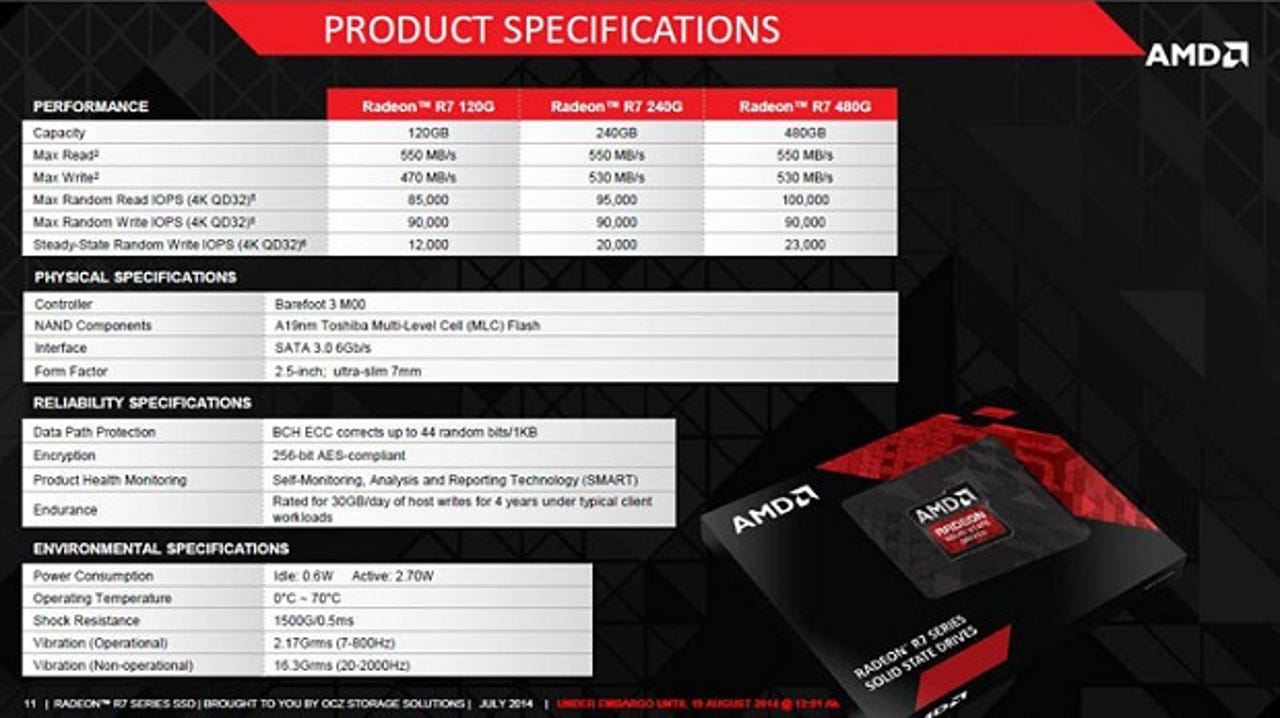AMD readies Radeon line of SSDs


The Radeon brand has been a staple of the PC world for years, best known as the primary competition to Nvidia's GeForce line of graphics cards. But parent company AMD is apparently not satisfied with keeping the logo exclusively on graphics boards, as its dabbling in the RAM market with Radeon-branded sticks suggests. Now you can apparently add solid-state drives to the list of components that AMD wants to sell with the Radeon badge on them.
Small business servers: Why and how you can say 'no' to the cloud
Leaked slides (show above) circulating the Internet show Radeon SSDs already in the works. They are being built around Toshiba's new 19nm multi-level cell (MLC) flash memory chips, with three different capacities comprising the R7 family of drives. Despite the Radeon name being associated with some of the fastest graphics cards on the market, AMD is not going the ultra-high-performance route with its SSDs, choosing to rely on the SATA interface rather than the much faster (albeit far more expensive) PCI Express option. Instead, reliability may be more of a selling point, as the company claims mean time between failures at 2.3 million hours and offers a longer-than-average four-year warranty.
While all versions of the R7 drives offer read speeds up to 550MB/s, the 120GB edition provides slower write speeds (470MB/s) than the 240GB and 480GB flavors (530MB/s). Again, each SSD is rated at 90,000 IOPS for writes, but they differ in reads: 85,000 IOPS for the 120GB, 95,000 IOPS for the 240GB, and 100,000 IOPS for the 480GB drives. All R7 drives include 256-bit AES encryption and are only available in the 2.5-inch form factor. Because the Radeon SSDs use the same memory chips and the same controller (Indilux Barefoot 3), there is online speculation that they will be essentially rebadged OCZ drives.
Those OCZ drives (the forthcoming ARC 100 series) are competitively priced at $74.99, $119.99, and $239.99 for the same three capacities, so pricing for the Radeon versions should be in line with those figures. Unfortunately, the leaked marketing slides do not disclose pricing or availability, but the premature disclosure may force AMD's hand in revealing the details a little sooner than it hoped.